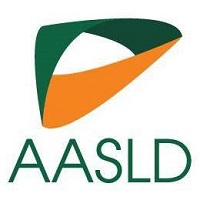 Merck’s fixed-dose combination hepatitis C virus (HCV) regimen elbasvir/grazoprevir cured high rates of individuals with genotypes 1, 4 or 6 of the virus who inject drugs and are receiving opioid agonist therapy. The Phase III C-EDGE CO-STAR study was a double-blind, placebo-controlled trial of the tablet among 301 participants, randomized to an immediate treatment group or a deferred treatment group.
Merck’s fixed-dose combination hepatitis C virus (HCV) regimen elbasvir/grazoprevir cured high rates of individuals with genotypes 1, 4 or 6 of the virus who inject drugs and are receiving opioid agonist therapy. The Phase III C-EDGE CO-STAR study was a double-blind, placebo-controlled trial of the tablet among 301 participants, randomized to an immediate treatment group or a deferred treatment group.
Results were presented at the Annual Meeting of the American Association for the Study of Liver Diseases (AASLD) in San Francisco.
Seventy-six percent of the participants had genotype 1a, 21 percent had cirrhosis and 7 percent were coinfected with HIV. Fifty-nine percent of the participants reported taking recreational drugs, such as cocaine or crystal meth, at the outset of the study; the rate remained steady through the study.
The 201 people in the immediate treatment group were treated for 12 weeks, while the 100 people in the deferred group received 12 weeks of placebo, went through a four-week follow-up period, and then received grazoprevir/elbasvir for 12 weeks.
Ninety-seven percent of participants took at least 95 percent of their medication.
The researchers released a modified analysis of the results that excluded three participants who stopped treatment for reasons unrelated to the study drug, and classified as successes five people who cleared hep C but were reinfected. In this modified analysis, 96 percent of those with genotype 1a (147 of 153), 97 percent of those with genotype 1b (28 of 29), 100 percent of those with genotype 4 (11 of 11) and 60 percent of those with genotype 6 (3 of 5) achieved a sustained virologic response 12 weeks after completing therapy (SVR12, considered a cure).
In an analysis that included all participants who took at least one dose of grazoprevir/elbasvir, 92 percent (184 of 201) were cured.
Four participants (1 percent) stopped treatment due to adverse side effects. Two participants (1 percent) reported a serious drug-related adverse side effect.
The most common side effects in the immediate and deferred groups, respectively, were fatigue (16 and 20 percent), headache (13 and 14 percent), nausea (11 and 9 percent) and diarrhea (10 and 9 percent). One participant receiving the placebo died for unrelated reasons.
To read a press release about the study, click here.

Istock






Comments
Comments